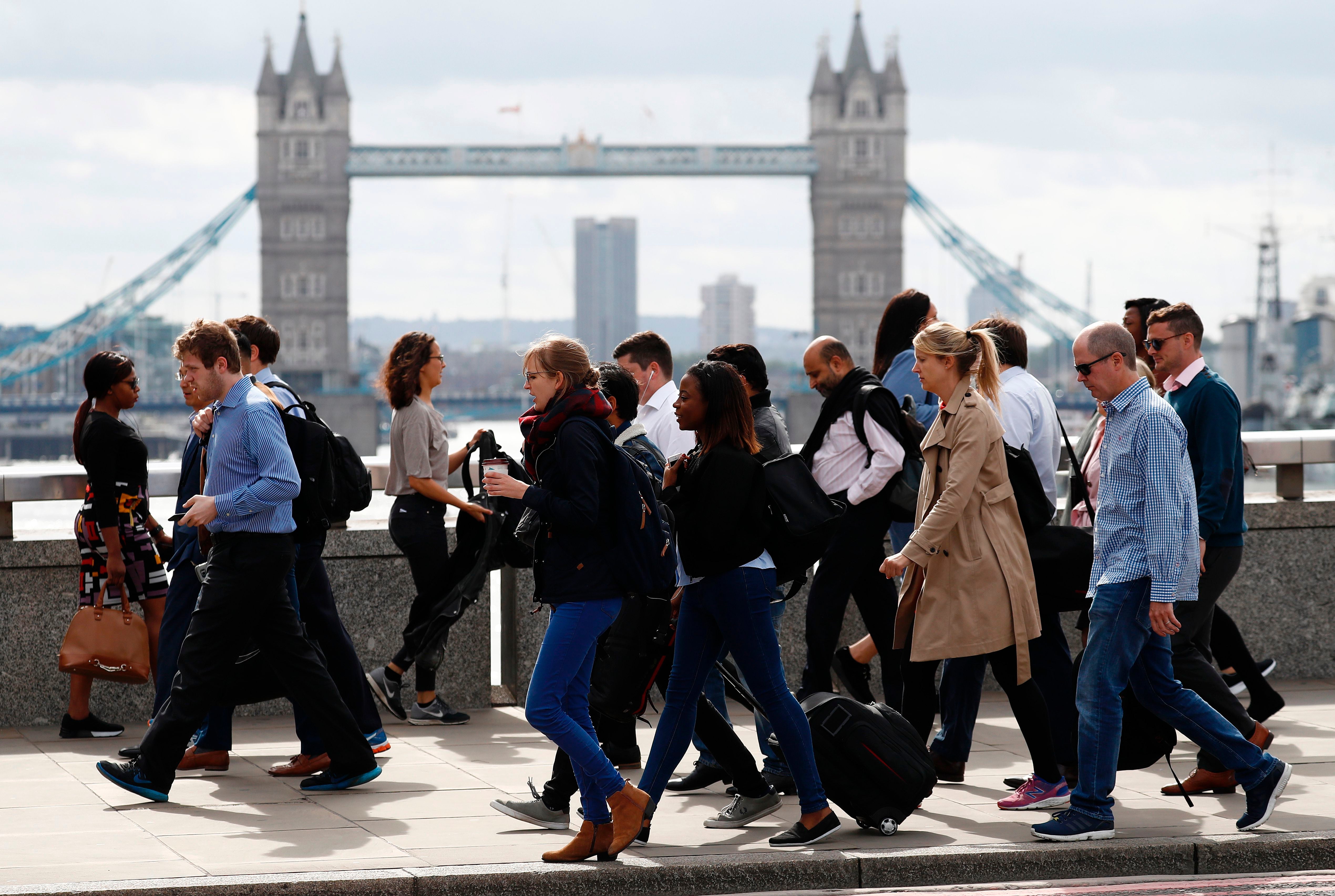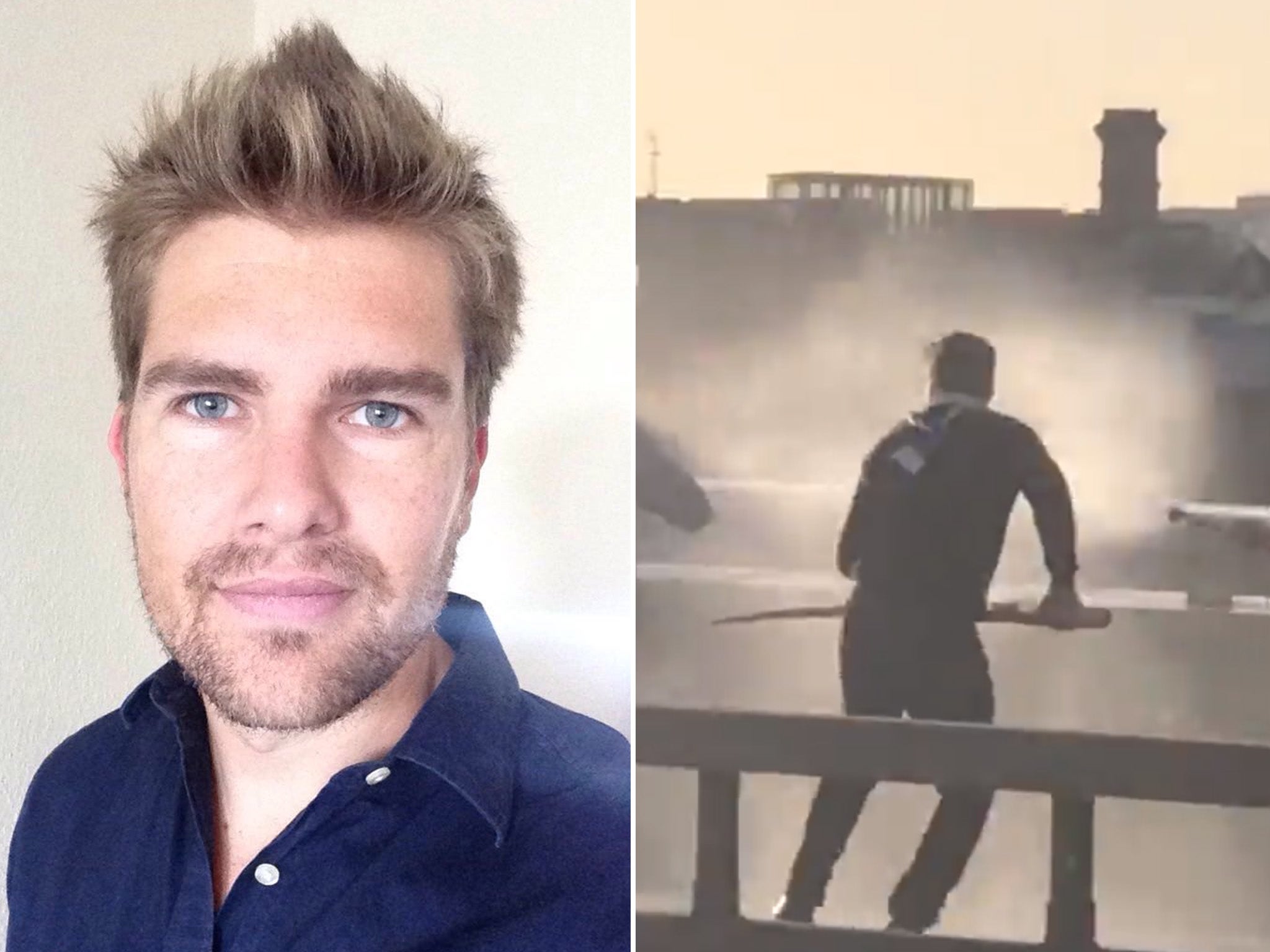‘Whenever I see his face, I’m taken back’: Terror victims call for reporting of attacks to change
Survivors Against Terror want media not to report fatalities until families have been informed

Victims of terrorism have issued an impassioned call for the way media organisations report on attacks to change, after some were harassed and left “traumatised”.
The Survivors Against Terror group said a survey of more than 100 people who had survived attacks found that intrusion by journalists was “endemic”.
A report published on Monday urged media outlets to sign a voluntary agreement on approaching bereaved families, and to change the way photos of attacks, victims and terrorists are used to help reduce distress.
A man who fought a terrorist with a narwhal tusk during the 2019 Fishmongers’ Hall attack told The Independent how a journalist attempted to “trick” him into talking about his actions before his role had been made public.
Darryn Frost, a civil servant, had been attending a prison education conference when Usman Khan went on a knife rampage that left two victims dead.
Mr Frost fought Khan inside Fishmongers’ Hall using the ornamental tusk, then chased him out onto London Bridge with other attendees including two ex-offenders. Khan, who was wearing a fake suicide vest, was shot dead by police.
In the days after the attack, confusion over the different roles played by the men who battled Khan saw actions attributed to the wrong people.
“That caused a lot of hurt,” Mr Frost said. “I got some emails on the first night after the attack about my role. Work put me in a hotel so no one could track me at home and knock on the door.”
He said a kitchen porter who also fought Khan, Lukasz Koczocik, flew to Poland after journalists “camped outside his house for two weeks”.
“That’s not how we should be treating people who are suffering from trauma in the immediate aftermath of witnessing some horrific events,” Mr Frost said.
“I’ve had it where people are like, ‘oh wow, you’re a hero’, but they don’t understand the horror and trauma of what we experienced.
“It looks very positive to an outsider but the [battle on London] Bridge was almost the easy part, the difficult scenes were in that hall.”

The report – written before the murder of Sir David Amess MP – found that 59 per cent of attack survivors had personally experienced intrusion in the immediate aftermath.
It called for a voluntary agreement not to directly contact the bereaved and injured for at least the first 48 hours, or to report the names of fatalities before loved ones have been told.
Survivors Against Terror appealed for media organisations to stop using photos of victims without their family’s permission and visiting relatives’ homes.
Members called for the creation of a survivors’ support hub to provide independent information and support to survivors of terror attacks.
Mr Frost saw victims of the attack with horrific injuries, and battled Khan in close quarters as the terrorist threatened to blow himself up with a fake suicide vest.
He helped to tackle the knifeman to the ground on London Bridge and pinned him down, before armed police pulled him off and shot Khan at close range.
Mr Frost said that during one of the first occasions he managed to go to a social event following the attack, a photo of the terrorist flashed up on the television and sent him into a “spiral of panic attacks”.
“This event isn’t over for me, it happens over and over, I still suffer terrible flashbacks almost two years later,” he added.
“I see his face and I’m seeing the bomb, I’m seeing the knives he’s holding and charging me with and I’m seeing the automatic rifles police are pointing at my head.
“I’m going through hell and I relive it every time his face pops up in a newspaper on the TV.”
The Survivors Against Terror report appealed for the media to reduce the naming of terrorists as much as possible, and to avoid using their photographs.
The group said media regulators should draw up guidance incorporating the recommendations and show “zero tolerance” to breaches.
Figen Murray, the mother of Manchester Arena bombing victim Martyn Hett, said media intrusion made “an awful situation even more horrific”.
“We all understand the public interest in terror attacks, but the public would be shocked by the pressure grieving families are being put under,” she added. “In my case my 16-year-old daughter was told by a journalist about my son’s death before we even knew as a family. Something has to change.”
Brendan Cox, one of the report’s authors and the widower of Jo Cox MP, said: “While there are some great examples of responsible media reporting there are too many instances of media coverage causing deeper pain to survivors while furthering the aims of the terrorists by amplifying their hatred.
“The coverage of the recent murder of Sir David Amess MP was markedly different from previous attacks with much less profile given to the alleged attacker. We hope that this is an early sign of media organisations thinking more deeply about how to cover such attacks.”



Join our commenting forum
Join thought-provoking conversations, follow other Independent readers and see their replies
Comments